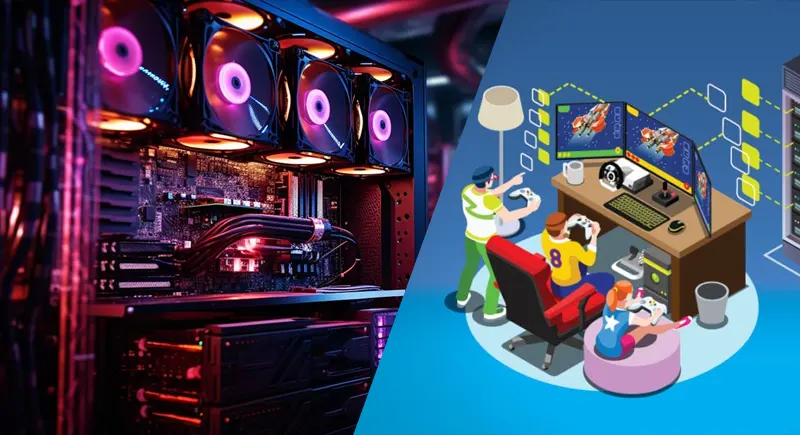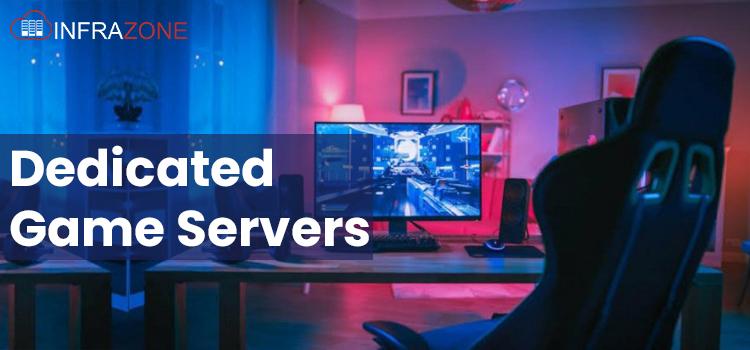Dedicated Gaming Servers with Low Latency: Enhancing Your Gaming Experience

Exploring the realm of Dedicated gaming servers with low latency, this introduction sets the stage for a deep dive into how these servers revolutionize the gaming experience. As we unravel the intricacies of dedicated servers versus shared servers and the crucial role low latency plays in gaming, prepare to embark on a journey of performance and stability like never before.
Get ready to uncover the secrets behind optimizing settings for low latency gaming and choosing the right server provider that aligns with your gaming needs. Let's elevate your gaming experience to new heights with dedicated gaming servers and minimal latency.
Overview of Dedicated Gaming Servers with Low Latency

Dedicated gaming servers are servers that are exclusively used by one individual or group for hosting and playing online games. They differ from shared servers, which are used by multiple users simultaneously for various purposes.
Low latency is crucial in gaming as it refers to the delay between the user's action and the server's response. High latency can result in lag, affecting gameplay and overall user experience. Dedicated gaming servers with low latency ensure a smooth and seamless gaming experience for players.
Benefits of Having Dedicated Servers for Gaming
- Improved Performance: Dedicated servers offer higher processing power, memory, and bandwidth, leading to better performance in online games.
- Enhanced Stability: With dedicated servers, there is less risk of server crashes or downtime, providing a stable gaming environment.
- Customization Options: Users have more control over server settings, allowing them to tailor the gaming experience to their preferences.
- Security: Dedicated servers offer increased security measures, protecting players' data and preventing potential cyber threats.
Factors Affecting Latency in Gaming Servers

When it comes to gaming servers, latency can make or break the gaming experience for players. Several key factors contribute to latency in gaming servers, impacting the overall performance and gameplay. Let's dive into the details of how server location, network infrastructure, hardware specifications, ISPs, and routing protocols can affect latency in gaming servers.
Server Location
The physical location of the gaming server plays a crucial role in determining latency. The closer a player is to the server geographically, the lower the latency they are likely to experience. This is because data packets have less distance to travel, resulting in faster response times and smoother gameplay.
Network Infrastructure
The quality and efficiency of the network infrastructure supporting the gaming server also impact latency. Factors such as network congestion, bandwidth limitations, and packet loss can lead to increased latency. A robust network infrastructure with high-speed connections and reliable data transmission protocols can help reduce latency and improve the overall gaming experience.
Hardware Specifications
The hardware specifications of the gaming server, including the CPU, RAM, and storage capacity, can affect latency. A server with powerful hardware components can process game data more quickly and efficiently, reducing latency and ensuring a seamless gaming experience for players.
ISPs and Routing Protocols
Internet Service Providers (ISPs) play a crucial role in reducing latency for gaming servers. ISPs with optimized routing paths and low latency connections can help minimize delays in data transmission between players and the gaming server. Additionally, efficient routing protocols ensure that data packets take the fastest and most direct path, further reducing latency and improving overall gameplay.
Choosing the Right Dedicated Gaming Server Provider

When it comes to selecting a dedicated gaming server provider for low latency gaming, there are several key factors to consider. From comparing latency performance to evaluating server maintenance and support, making the right choice is crucial for a seamless gaming experience.
Comparing Latency Performance
- Review the latency performance of different dedicated server providers by testing their servers with gaming applications.
- Consider the geographical location of the server providers and how it may impact latency for players in different regions.
- Look for user reviews and feedback on the latency performance of each provider to get a better understanding of their track record.
Criteria Checklist for Selection
- Ensure the server provider offers dedicated resources specifically optimized for gaming to minimize latency.
- Check for the availability of low-latency networks and high-speed connections to ensure smooth gameplay.
- Evaluate the provider's reputation for reliability, uptime, and customer support to address any latency issues promptly.
Importance of Server Maintenance and Support
- Regular maintenance and updates are crucial for optimizing server performance and minimizing latency for gamers.
- 24/7 technical support can quickly address any latency issues that may arise during gameplay, ensuring a seamless experience for players.
- Choosing a provider with a proactive approach to server management can help prevent latency issues before they impact gaming performance.
Optimizing Settings for Low Latency Gaming
When it comes to online gaming, optimizing settings for low latency can make a significant difference in your overall gaming experience. By tweaking certain game settings and network configurations, you can reduce latency and enjoy smoother gameplay.Excessive graphics settings, high frame rates, and poor network configurations can all contribute to increased latency in gaming servers.
To minimize latency, it's crucial to find the right balance between visual quality and performance. Lowering graphics settings, reducing frame rates, and optimizing network configurations can all help decrease latency and improve overall gameplay.
Impact of Graphics Settings
Adjusting graphics settings such as texture quality, shadow quality, and anti-aliasing can help reduce the strain on your system and decrease latency. By lowering these settings, you can improve FPS (frames per second) and decrease input lag, resulting in a more responsive gaming experience.
Frame Rates and Latency
High frame rates can lead to smoother gameplay, but they can also increase latency if your system is struggling to keep up. By capping your frame rates at a stable level that your system can consistently maintain, you can reduce latency and ensure a more stable gaming experience.
Network Configurations and Latency
Optimizing your network configurations, such as using a wired connection instead of Wi-Fi, can significantly reduce latency in online gaming. Additionally, ensuring that your router settings are optimized for gaming can help minimize latency spikes and provide a more stable connection.
VPNs and Gaming Proxies
Using a VPN or gaming proxy can sometimes improve latency by providing a more direct connection to gaming servers. However, it's essential to choose a reliable VPN service that offers low latency and minimal impact on your overall connection speed.
Experimenting with different VPN servers and configurations can help you find the optimal setup for reducing latency in online gaming.
Final Review
In conclusion, Dedicated gaming servers with low latency offer a gateway to unparalleled gaming performance and stability. By understanding the factors affecting latency, optimizing game settings, and selecting the right server provider, you pave the way for a seamless gaming experience.
Embrace the world of low latency gaming and immerse yourself in a realm of uninterrupted gameplay and enhanced user experience.
Quick FAQs
What are dedicated gaming servers?
Dedicated gaming servers are servers exclusively used for hosting online games, providing enhanced performance and stability compared to shared servers.
Why is low latency important in gaming?
Low latency is crucial in gaming as it reduces delays between player actions and server responses, resulting in a smoother and more responsive gaming experience.
How can server location affect latency?
Server location plays a significant role in latency, as closer servers reduce the physical distance data needs to travel, resulting in lower latency for players.
What criteria should I consider when selecting a dedicated server provider for low latency gaming?
When choosing a server provider, factors such as network infrastructure, server maintenance, and support services should be considered to ensure consistent low latency for gaming.
How do VPNs and gaming proxies help improve latency for online gaming?
VPNs and gaming proxies can help improve latency by optimizing network routes, reducing congestion, and providing a more direct connection to game servers.

